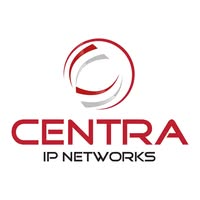Explore Top Telecom Companies in United States
Alliance delivers cutting-edge audiovisual, network infrastructure and security solutions.
Services:
Simplified IT Solutions for the Modern Franchise

Charlotte, United States Head office in: United Kingdom
Teceze is a trusted managed IT provider offering comprehensive solutions to optimize and elevate business IT operations with excellence.
Services:

CTS Companies Verified Company
Ann Arbor, United States Head office in: United States
Family-owned for 40+ years, CTS Companies provides managed IT, cybersecurity, cloud, and voice solutions to keep businesses connected and secure.
Services:

Velan Info Services Verified Company
Dover, United States Head office in: India
Velan Info Services a 100% EOU registered with STPI, is in its 18th year of business offering IT & BPO services to clients across 12 countries
Rivell is a leading Managed IT support and services company based in New Jersey.
Services:
IP Communications simplified
Services:
Experience the Best with Spectrum Services
Services:
Computer Geeks: managed IT service provider & off-site backup facility, installation, remote support, maintenance for thousands of computers each day
Services:
Data is the key to unlocking opportunities, which NASSCOM & ISO certified Eminenture Pvt. Ltd. helps to withdraw from a pool of datasets.
We are a tech company located in N Kansas City providing computer network support and managed services throughout the KC Metro area!
Platform Engineering and Decision Intelligence Partners
Finding the Right Developers has never been this easy!
Services:
StarSyn provides specialized Information Technology and Cyber Security services to the Central Coast of California.
Services:
Managed IT Services Provider that offers technology solutions for small and medium businesses.
Maximize your return on IT with 24/7/365 services from Ideal Integrations!
Services:
SEO is one of the best Outsource Website companies
Services:
Proactive Cybersecurity & IT Support For Orlando Business Owners
Services:

Novatech, Inc. Verified Company
Memphis, United States Head office in: United States
Novatech, Inc. covers Managed Office Solutions including IT, print, and cybersecurity solutions. Want to lease a copier? We got you covered! Call Us!

Computers Made Easy Services Verified Company
Portland, United States Head office in: United States
We Keep Our Clients Focused On What Matters Most
SwiftTech Solutions - Managed IT Services. We offer a comprehensive range of IT services that are designed to help businesses.
Services:
Digital Marketing Consultancy
Services:
We are a creative agency specializing in web design and implementation of web sites.
Services:
Filter Telecom Companies in United States by Cities
Find the right tech company near you or from a specific city. Some of the best companies might be located in smaller cities.
Find more Telecom companies around the world
TechBehemoths is the world's most advanced and user-friendly platform to match IT Companies with real clients without hustle.
ICT in the United States: General Profile and Insights
The United States has probably the most advanced software and information technology (IT) services industry in the world. More than 40 percent of the $5 trillion global IT market is in North America, primarily the United States. The industry accounts for $2.1 trillion of U.S. value-added GDP (more than 10 percent of the national economy) and 702.276 jobs. According to CompTIA, there are more than 700,000 software and IT services companies in the United States.
The average net salary of a web developer in the US is around $82,532 annually. On the other hand, the hourly rate is nearly $33.47, which makes it one of the best-paid jobs in the world within the IT industry.
Why Should You Work With American Web & Software Development Companies
U.S. software development companies operate in a mature, harmonized market and have a reputation for producing reliable and effective solutions that quickly accelerate to the marketplace. International companies in the industry have shown interest in the U.S. market because of its strong intellectual property rights laws and enforcement. U.S. companies lead the world's packaged and custom-software markets and are competitive in nearly all other market segments with a stable overseas market share.
What You Should Be Aware of When Working With a US-based ICT Company
Having a large IT market has both advantages and disadvantages. While offering a wider variety of US IT companies to choose from is one of the biggest advantages the U.S. has to offer, the challenge for potential clients and partners of the U.S.-based web & IT companies is that the industry development is not equally distributed across all states and cities. For example, many tech companies are relocating to Texas from Silicon Valley. This is why it’s good to have in mind the most important U.S. IT hubs and focus on choosing the most suitable one depending on your needs.
How Reliable are US-based IT Companies
Based on a report delivered by CompTIA in 2020, which is still relevant for 2025, the changes in the global IT market that make competition in this area tougher, U.S. companies will focus more on three development pillars:
- Training and Certification of professionals in their existing tech skills
- Training and Certification of professionals in new tech skills
- Career growth and project management.
This means that the market is saturated with the workforce, and there is a small probability that companies will increase their hiring rate for new professionals. However, intensive and extensive skills development of U.S. tech professionals will increase the capacity and attractiveness of U.S. IT companies and web agencies. Additionally, this will improve the already well-developed abilities to deliver high-end products and services in the IT field.
How Does the US IT Industry Relate to the Neighboring Countries
Considering that the US has probably the most developed IT infrastructure, the industry will keep its position for at least 3 years. On the other hand, the rising numbers of IT companies from Canada and Mexico come in contrast with what US companies have to offer. In other words, clients still have to choose between US companies and neighboring countries as the offers differ in quality and ways of executing projects.
Overall, the US IT industry is in leading positions in different sectors, and combined with an authentic business culture, will probably continue to keep its attractiveness. Although companies from the U.S. are flexible and are always adjusting to market requirements, the global market still remains unpredictable, which may lead to significant changes in the future.
US Tech Industry Outlook for 2025 and Beyond
The US is still leading the world with its cutting-edge technologies, despite some narratives. The expected revenue for the market of IT Services in the US is $563.94 billion by 2025, with a CAGR of 3.73% from 2025-2030, according to Statista. The biggest segment of this segment is IT Outsourcing, reaching $218.02 billion by the same year. This sector has an increased demand for solutions in cloud computing and cybersecurity services.
Artificial Intelligence will influence the tech sector in the US, with only the Generative AI contribution to GDP of $7 trillion in the next 10 years, and it can save up to $1.4 billion for the federal government.
The US is keeping its position in scientific research, graduate education, AI firms, and competitiveness. The US tech sector’s future focuses include AI, increasing cybersecurity & cloud computing.
What is Telecom and what are its benefits for your projects?
Telecommunications, often referred to as telecom, involves the electronic exchange of information across long distances. It encompasses various methods of transmitting voice, data, and video. This expansive field encompasses a wide range of technologies and communication infrastructures. Examples include wired phones, mobile devices like cellphones, microwave communications, fiber optics, satellites, radio and television broadcasting, the internet, and telegraphs.
By the end of 2021, there were 5.3 billion mobile service subscriptions, covering 67% of the world's population. Over the next five years, there will be an addition of more than 400 million new mobile subscribers.
Huawei, Cisco, Nokia, Ericsson and Qualcomm are some examples of companies that specialize in telecommunications infrastructure.
Advantages of Telecom
Businesses can leverage the latest telecom technologies through telecom. They can collaborate with an operator without upfront costs, enabling them to thrive in today's unpredictable digital market.
Telecom has a number of important benefits, including the following:
-
Cost saving (low up-front capital investment)
-
Time-saving (guaranteed time to market)
-
Flexibility (pay-per-use financial model)
-
Security
-
High-functioning management system
Telecommunications has revolutionized the world by enabling distance communication and creating new opportunities, such as online education, remote business meetings, and communication with people from anywhere.


















